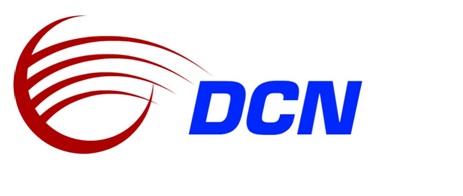Over the past several years, more attention from federal and state governments is turning to employee misclassification of independent contractors. Due to the volume of independent contractors, challenges to employment classifications in the transportation industry have become more common.

While these labor laws are created to support workers, these same laws can also contradict some positive aspects of working as an independent contractor. The key is to ensure that the independent contractor business model meets with the ever-increasing legal compliance issues.
So- what does this mean for you? For your business? This article will walk you through the meaning of “employee misclassification”, examples of laws recently passed in several states, and ways DCN works to help your business stay in compliance.
So, What IS Misclassification?
Misclassification is the practice of employers improperly classifying an employee as an independent contractor. It leads to the illegal deprivation of employee rights and protections provided through state and federal labor laws.
While the government would prefer the entire workforce be considered “employees”, many workers in the transportation industry continue to prefer the flexibility and compensation advantages of being an independent contractor.
However, the problem often sits in knowing when to classify someone as an independent contractor versus an employee. For example, many states have implemented the “ABC Test”, where you must meet all three components to legally name someone as an independent contractor.
Examples of the New Misclassification Laws
Over the past few years, we’ve seen a variety of new misclassification laws implemented across the United States. Multiple laws surrounding misclassification have been implemented in states like New Jersey, California, and New York.
- New Jersey: Injunctions and Stop-Work Orders- Law A5890
This law involves preventing misclassification through injunctions.
- New Jersey: The Office of Strategic Enforcement and Compliance- Law A5891
Law A5891 oversees the creation of the Office of Strategic Enforcement and Compliance, a sub-department in the Department of Labor.
- New Jersey: Insurance Fraud- Law A5892
Misclassification to evade payment of insurance or insurance benefits will now be considered an act of insurance fraud.
- New Jersey: Public Database for Public Work Projects – Law A1171
Law A1171 creates a public database on all public works projects, starting in 2022.
- California: AB5
Also known as the “gig worker bill”, this act, passed in 2019, states the burden of proof for classification is on the hiring entity. It also specifies that most people should be considered employees instead of independent contractors using the “ABC” test.
- New York: Fair Play Act
This act aims to help employers determine if someone should be classified as an employee or an independent contractor in the state of New York.
- Federal Government: Protesting the ProAct
The ProAct is a federal bill putting stress on independent workers. The PROAct uses the exact same language found in California’s AB 5 law. Under this bill, it is significantly more difficult for a worker (critically many truck drivers) to demonstrate if they are an independent contractor.
Potential Solutions from DCN
We know- this all can seem intimidating. However, there are solutions for your transportation business.
To counter these government challenges to the Independent Contractor (IC) business model, Distribution Cooperative Network (DCN) was created in 2014. DCN’s objective is to provide ICs benefits and connect ICs to potential clients/businesses. We work hard to make sure our ICs fit the definition of “independent contractor” as outlined, by both federal and state guidelines. Here are some basic ways DCN helps do this:
- Members own 100% of DCN with each member buying a share of stock upon enrolling into the Co-op. Currently, DCN has over 6,000 members… and growing!
- DCN provides drivers to over 200 subscribing client businesses with each member having access to varied assignments offered.
- Members either own or lease their vehicles and are responsible for all of their operating expenses.
- Profits generated by DCN are distributed back to its member shareholders, allowing each member to profit on their investment.
- Members are paid and 1099’d by DCN, per their DCN agreement.
- Each DCN member negotiates their compensation agreement with our subscribing client.
Should a misclassification issue arise, DCN offers free legal representation and services for ICs and subscribing businesses. We are proud to be the best solution to preventing misclassification while doing our best to provide ICs the work flexibility they prefer.
Reach out to us today to learn more about other benefits for subscribing clients. Like what you see? You can become a subscribing client with DCN. Learn more about DCN today!

